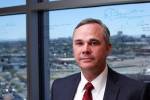Nevada tries hard to make sure Faraday promises kept
CARSON CITY
If you're going to do economic development, this is probably the way to do it.
Nevada lawmakers on Thursday were debating the details of bills designed to codify a deal made between the state and Faraday Future, a company working to build the next-generation electric car. Faraday has agreed to build a plant in the Apex area of North Las Vegas in exchange for a package of tax abatements and transferable tax credits.
But the state is being cautious about how it's giving out the abatements on sales and property taxes: For at least half of those abatements under consideration in this week's special legislative session, Nevada will still collect taxes from Faraday and deposit the money into a trust fund.
If Faraday does build its $350 million plant and install the anticipated $1 billion in car-making equipment inside, it will get the incentives and the interest generated by the trust fund. If it doesn't — even if it falls just a few million short — the company won't see a dime. (In that event, the tax money and interest from the trust fund will be distributed to the state and local governments.) And companies trying for the incentives have a maximum of 10 years in which to take advantage of the assessments.
Steve Hill, director of the Governor's Office of Economic Development, said the provisions introduce a bit of accountability to the process.
The same is true for the direct jobs estimated to be created by the project: Faraday will earn a transferrable tax credit of $9,500 per job created, up to a maximum of 4,000 jobs, but will only earn that money once the jobs are in place.
Contrast that with the funding for the infrastructure projects that will be needed at the Apex site, including roads, water and sewer pipes, and other necessities. Those items will be funded by state-issued general obligation bonds, and taxpayers will be on the hook if the Faraday project doesn't materialize, or if its revenues aren't sufficient to cover the costs.
That was the unsubtle message sent by state Treasurer Dan Schwartz, who in a statement encouraged legislators to engage in "thoughtful deliberations" before adding: "I want to stress, however, that if the revenues projected for this project fall short, Nevada taxpayers will be asked to pick up the bill. Legislators should also bear in mind the precedent-setting nature of this bill and to consider all possibilities should there be problems later down the road."
No pressure.
But building infrastructure to facilitate commercial and residential development is one of government's responsibilities, although cash-strapped North Las Vegas would typically be responsible for building water, sewer and similar lines out to Apex. It's only because of the Faraday project that the state is involved.
State officials argue that building the infrastructure will have additional benefits, including opening the rest of the Apex area to development. In fact, other companies have passed on locating in Nevada because the area wasn't ready for construction, officials said. Once this legislation is passed, Apex can be marketed as a thriving industrial center.
The bottom line, according to Hill, is that incentives are essential to recruit the Faraday project to Nevada. "Without them, Faraday would not come," he said at the start of a Senate hearing on Thursday. But that doesn't mean the state can't structure the deal in such a way to ensure that what's promised on paper comes to life in the real world. The language in the Faraday bill shows state officials have at least made an attempt to do just that.
— Steve Sebelius is a Las Vegas Review-Journal political columnist and co-host of the show "PoliticsNOW," airing at 5:30 p.m. Sundays on 8NewsNow. Follow him on Twitter (@SteveSebelius) or reach him at 702-387-5276 or ssebelius@reviewjournal.com.




























